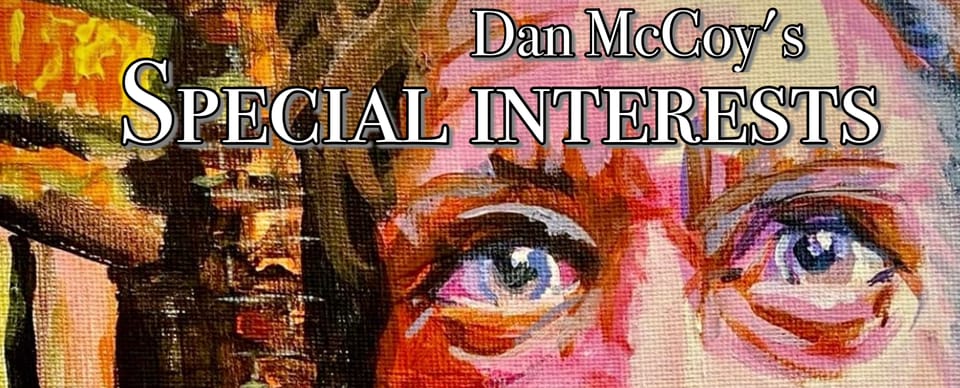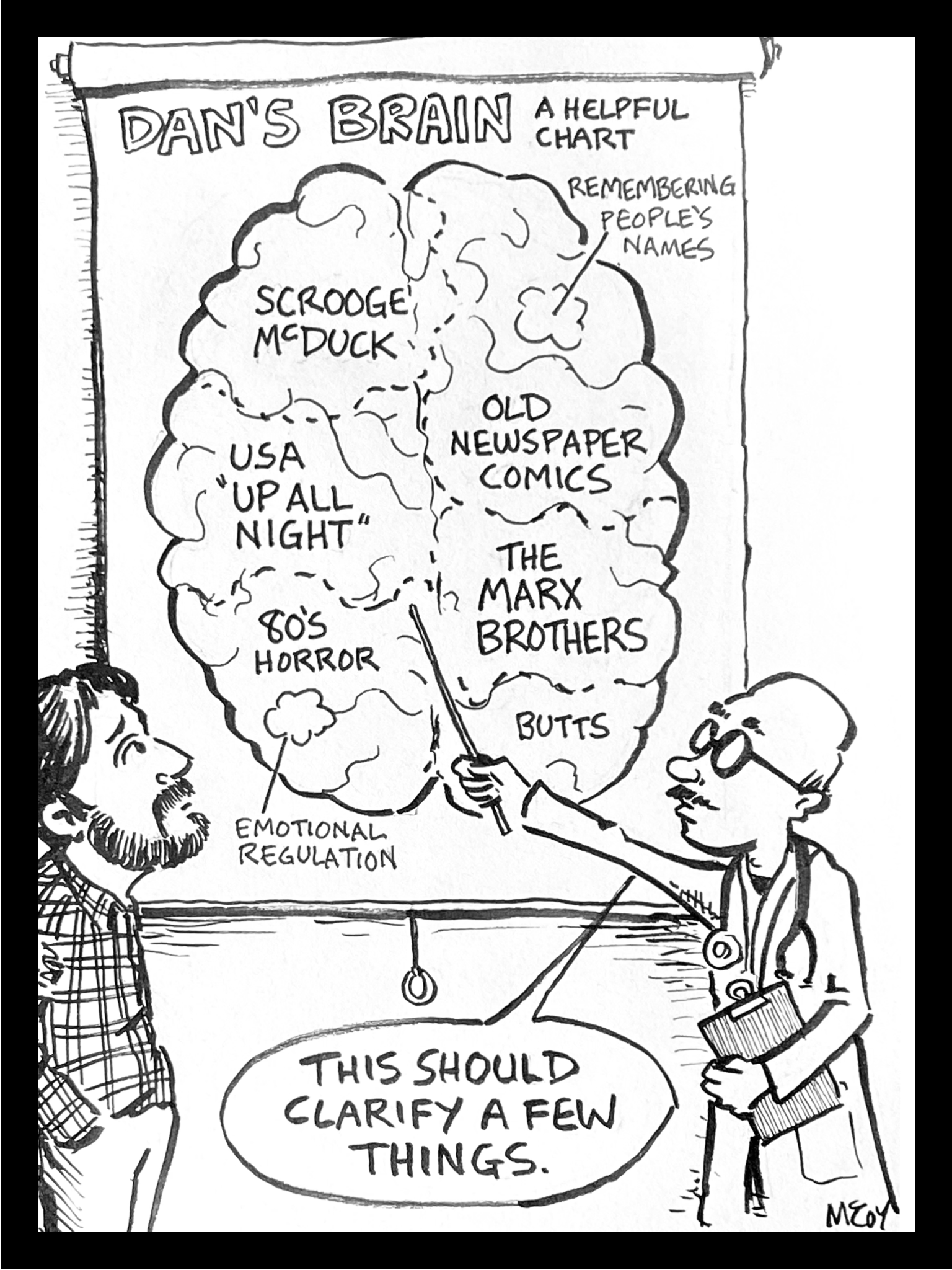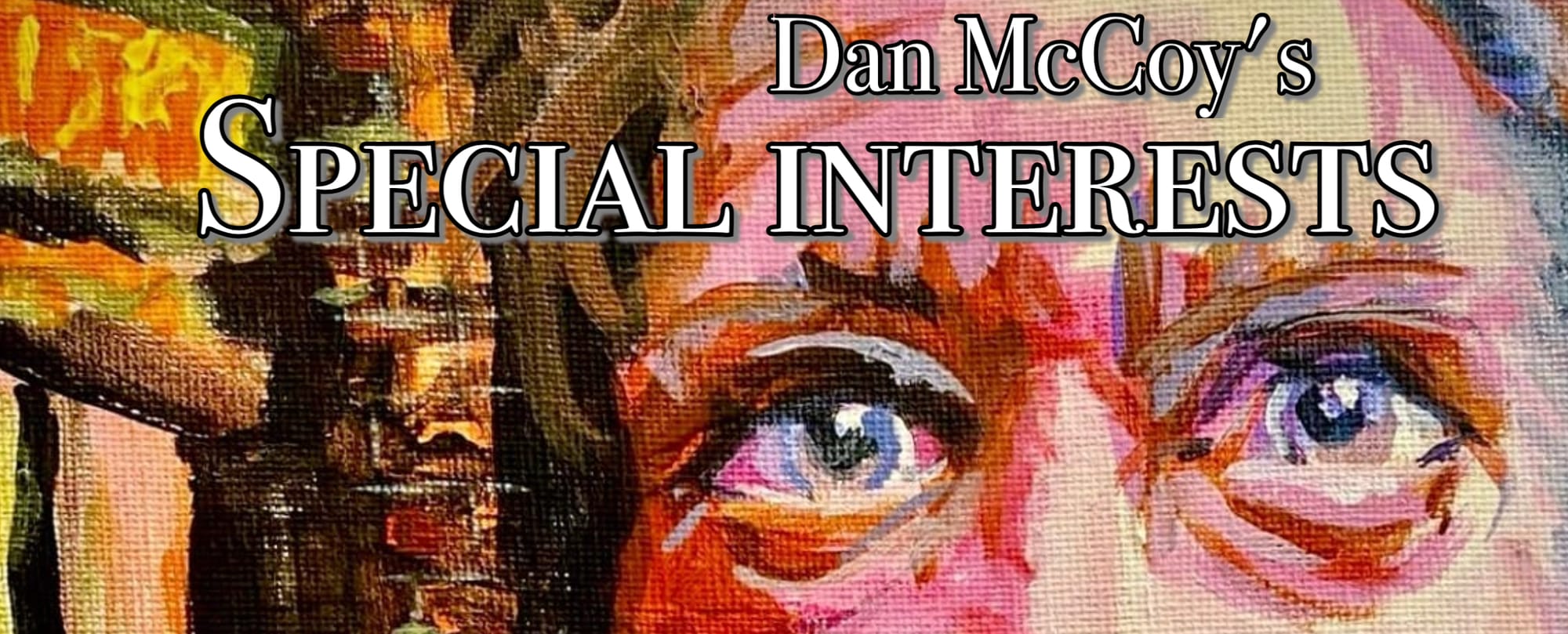Let's Begin at the Middle

In 2024, at the age of 45, I was diagnosed with ADHD.
This immediately went in the column of “Things It Would Have Been Helpful to Know About Before Middle Age,” along with higher-yield savings accounts, exactly the degree to which slouching would fuck up my body, and the existence of something called “emotional regulation.” (To be fair, that last one was mostly an issue because of the ADHD.)
How did it take so long? Well. While these days I live in Brooklyn, where most of my non-pop-culture conversations with my also-aging male friends are about stuff we realized in therapy, I grew up in the Midwest in the 80’s and 90’s. In that time/place, the notion that you should be “healthy” “mentally” was as new and confusing as this “sushi” city folk were eating. (If you didn’t live through it, you could not imagine how baffling the idea of eating raw fish was to heartland ‘mericuns at that time. Uh, salmonella much?) Back then, what passed for therapeutic advice was, “try not to think bad things.” Of course, as a human, bad things accounted for 80% of my thoughts, but no one said anything about them, so if you were thinking them, you must be very bad, which is another bad thought you should probably squinch down inside.
Mental health was only something to worry about if you were an obvious cartoon-style nutjob who thought you were Napoleon or something. (Why is that the stereotype for “crazy” person? My guess is it has something to do with the hat. Speaking semiotically, distinctive headwear is hard to beat as an immediate visual cue. If Grover Cleveland was known for wearing a Jamiroquai hat, he could have just as easily been shorthand for cuckoo-bananas, rather than his current status as “Most memorably-named president you can’t name a single fact about.”)
What’s more, ADHD was specifically viewed with extra-special suspicion – a typical Midwestern parent’s reaction at the time would’ve been, “Back in my day, kids like that were just called hyper! They don’t have anything a good spanking won’t cure. A whuppin’ never did ME any harm!” Then they would go sit in a shed for hours, drinking Miller High Life and shooting things, contemplating just how much a whuppin’ hadn’t done them any harm.
I probably should admit that it wasn’t just cultural forces that delayed this revelation – I never suspected I had ADHD either, because I wasn’t hyperactive. To the contrary, I was an intensely focused kid (when I wanted to be), spending hours inside the house drawing, painting, reading, watching old movies, and – when I hit puberty – furiously masturbating. I excelled at the arts, and I was smart enough to get good grades with the minimum of work, which was usually my preferred amount of work. My only obvious dysfunction was some emotional edginess, which my Mom tried to treat by giving me a book titled “The Highly Sensitive Person,” which I huffily refused to read, because her implying I was sensitive insulted my sensitive soul.
Anyway, I belatedly got my diagnosis because of my my older brother. In even later middle age than I, he’d been diagnosed as being on the autism spectrum. This threw me, because he and I are similar in many ways – we both have a crisp layer of awkwardness hiding a warm creamy center; a savant’s gift for various pursuits, while still being baffled by many basics of polite society; and even a shared penchant for rubbing our feet together for comfort – stimming, in the parlance of the neurodivergent. (Not like… OUR feet together. Like, I don’t rub my feet against my brother’s feet. We each rub our own feet against one another. You know what? You get it.) His diagnosis made me curious if I was the same, and my lifelong feeling of being “a little different,” might be redefined as “confirmed as clinically different.”
Turns out, my neurodivergence was different from his (no spoiler alert here, I put in the first sentence; go back and read it). I do share a few spectrum-y traits, but to rewrite an old joke, I’m not so much autistic as autist-ish. There’s can be a lot of overlap, and sometimes it’s confusing – ADHD and autism spectrum share a lot, and are often comorbid. (*Comorbid: [kō-ˈmȯr-bəd] adj : existing simultaneously with and usually independently of another medical condition, and not the relationship style in Tim Burton’s The Corpse Bride.)
Why am I telling you this? Well:
(1) because all of my friends and family are sick of hearing about it. Don’t judge them too harshly – if I bring up this fascinating-to-me new fact about myself, it’s often in the context of me explaining why my previous (or current) irritating behavior is actually a symptom of my brain structure, so please go easy on me, and you can imagine how that gets old quickly. Fortunately, you, dear reader, have (probably) never had to deal with me, so we’re not going to run into that problem.
And (2) because one thing that’s common to many neurodivergent people is something called “Special Interests,” which the eagle-eyed among you have clocked as the name of this newsletter. Good work! (Is this flattery doing anything for you? Do you like me? PLEASE LIKE ME!) Most frequently Special Interests tend to be discussed in relation to people on the spectrum, but it’s often true for ADHD folks as well. It’s certainly true for me.
Sure, “Special Interests” kind of sounds like a euphemism for something a serial killer does in the basement (“Don’t mind ol’ Norman and his bird taxidermy. That’s just one of his special interests”), but it covers all sorts of quirky fascinations. Remember how I thought I couldn’t have ADHD because I could hyperfocus or excel in certain areas? Turns out I’m hypercharged in certain areas, because they’re related to my special interests. Try to explain the rules of a board game, or put me in front of an insurance form, and my brain will shut down like the spinning beach ball of death, and I’ll zone out and start thinking about Scrooge McDuck and how he might be rich, but he’s a terrible businessman for putting all those coins in a giant cement rectangle, rather than one of those previously-referenced high yield accounts that I learned about well after my peak earning years.
“Sure, Dan.” You say, doing your best Marcia Brady. “That’s EVERYONE. We all pay more attention to the stuff we’re interested in.” To that I say, “No, it’s different. Read any article or book about neurodivergence. And also, why are you making a ‘Sure, Jan,’ Brady Bunch reference in 2024? Get with the times, fictional reader from my head.”
Special Interests are the things neuro-atypicals obsess over and chat your ears off about at the bar. (Well, if we’re chatty. As an “inattentive” rather than “hyperactive” ADHDer, I’m more of a “sit really still and hope you’re like a T-rex and forget I’m here” kind of socializer.) It’s the stuff we get annoying about.
Except in my case, it’s kind of helped me? For the past 17 years I’ve been one of the co-hosts of The Flop House, a podcast about bad movies, where my pop culture obsessions have proven to be a thing people WANT to hear me talk about, and it’s paid many of my bills and brought me a minor sort of fame. (“Internet famous” is one of the shabbiest kinds of fame, but fortunately it’s just famous enough to let me know I don’t actually want any more.)
Meanwhile, I’ve written comedy for television for over a decade – most significantly for The Daily Show with Jon Stewart and The Daily Show with Trevor Noah – and comedy writing is one of the few places where having an encyclopedic knowledge of garbage is not only tolerated, but rewarded. For that work, I’ve gotten two Emmys, a Peabody, and – least justifiably for me, a white guy from rural Illinois – an NAACP Image award. Fortunately, people enjoy hearing me discuss this stuff!
Well…. to a point. Here’s where I’m honest: this newsletter started out as a book, but publishers (quite reasonably!) didn’t see the need for another book where some comedy dude writes about pop culture. To be honest? Fair. Totally fair. We probably don’t need another book like that.
But you know where people like that stuff? ONLINE NEWSLETTERS, BAYBEEEEEE! So I thought this might be a great home for some of that material and for all-new material that falls under the same umbrella. I’m genuinely excited to share, if for no other reason than I enjoy writing, and I enjoy it even more when someone’s reading what I write, unlike the various spec scripts that take up the rest of my life (Agents! Producers! They’re available on request!). So thank you very much for being here. It’s touching that so many of you who’ve enjoyed my work elsewhere have opted to take this trip through my special interests with me.
And if it turns out to become wildly popular? Enough to be a book, so I can shove it in those snooty publishers’ faces? All the better.
(Note to future publishers: You’re great. I didn’t mean you. I was talking about someone else.)

